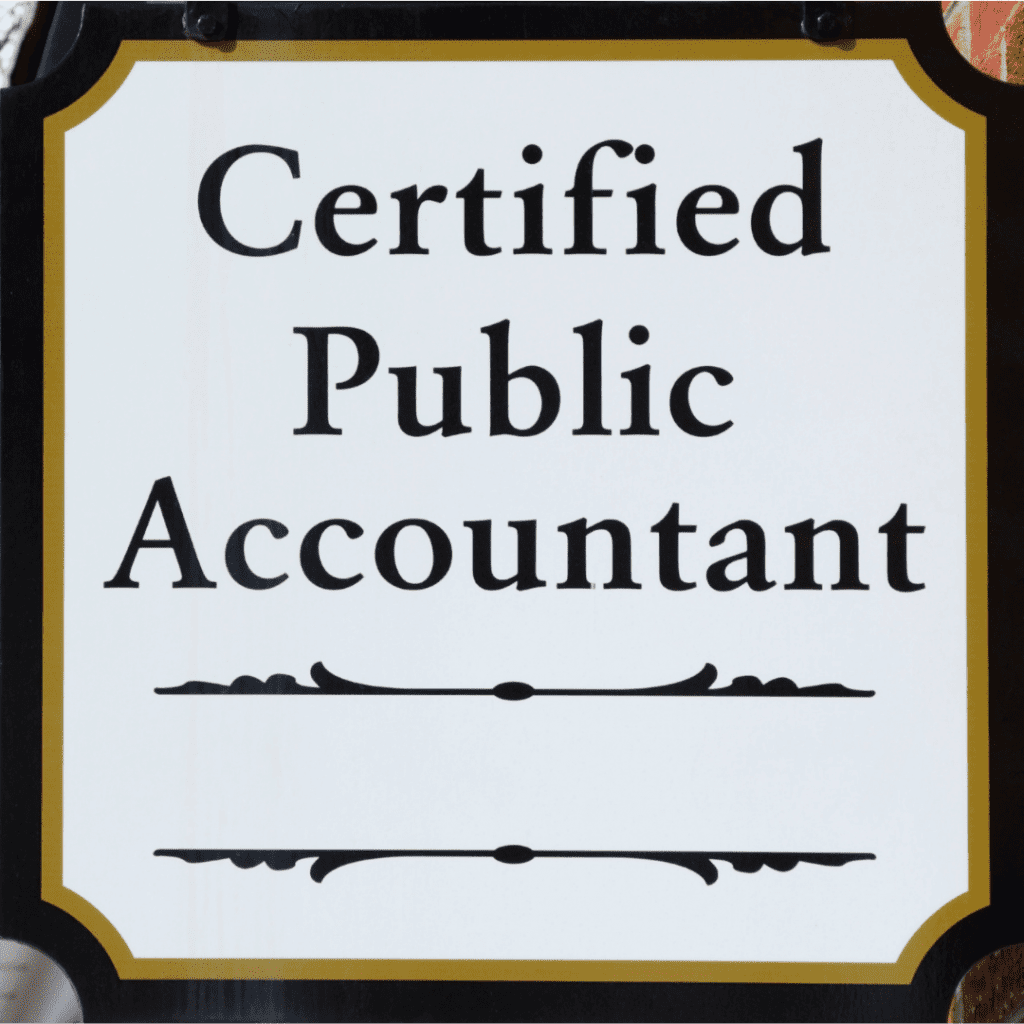Tax Attorney Vs CPA: What’s the Difference?
If you’re reading this article, the odds are that you need help with your taxes in some way. Perhaps you received an audit letter from the Internal Revenue Service. Maybe you’re late in filing your tax returns and you don’t know what steps to take.
And as you do your research, you’re probably learning about different types of tax professionals, like tax attorneys and CPAs. And you’re wondering, what’s the difference between a tax attorney vs a CPA?
If this is you, then this article will break down exactly what you need to know to help you in dealing with your tax problems. Let’s start by learning a little more about each of these professions.
Contents
What is a tax attorney?
A tax attorney is a licensed attorney who practices in the specialty of taxation. The majority of tax attorneys have an advanced degree in tax law, an additional certification in tax law, or both.
Tax law degree
A tax attorney may have an advanced law degree, also known as an LLM, or Master of Laws degree. This is an additional degree, conferred by the law school, after the attorney has earned their JD, or Juris Doctor degree. Some joint education programs offer a combined JD/LLM degree.
An LLM in taxation usually consists of about 24 to 28 credit hours (6-8 classes) of advanced tax topics. An LLM may be obtained as part of the attorney’s tax law certification, or on its own with no certification.
Tax law certification

A tax law certification usually is granted by the state bar association that the attorney is registered in. As the granting authority, the state bar will have its own designation requirements. For example, to become a tax law certified lawyer in Florida, the Florida Bar Association requires:
- Practice of law for at least five years after passing the state bar exam. If you’ve previously earned an LL.M in tax law or a related field, this experience requirement is four years.
- Substantial involvement in the specialty of tax law. This is defined as 500 hours or more per year, which must be completed during the three years immediately preceding application.
- 90 hours of approved tax law certification continuing legal education. Again, this must be done in the three years immediately preceding application.
- Peer review
- Written examination
Your state’s requirements might differ.
Technically, any attorney who is licensed to practice law can practice tax law. However, most attorneys who venture into taxation usually do so after accumulating years of experience and specialized education.
What is a CPA?
A CPA, or certified public accountant, is a licensed accounting professional. Like an attorney, a licensed CPA does not have to practice taxes. However, to obtain their CPA license, every CPA must complete rigorous education and experience requirements.
What the the requirements to become a CPA?
To become a Certified Public Accountant, one must meet minimum state requirements. Additionally, an aspiring CPA must meet the standards set forth by the accrediting agency, known as the American Institute of Certified Public Accountants (AICPA).

Most state requirements include:
- Obtain 150 semester hours of related accounting experience at an accredited university
- Have at least a Bachelor’s degree in accounting or a related field
- Meet work experience requirements (usually 2 years of public accounting experience at an accounting firm)
- Meet residency requirements (which differ by state)
Additionally, the AICPA expects that each person:
- Passes a comprehensive, 4-part exam, known as the Uniform CPA Exam.
- Meet and adhere to ethical requirements as defined by AICPA
After passing the CPA exam, most professional accountants join their state board of accountancy to maintain their CPA license.
Like attorneys, CPAs do not have to practice in the field of taxation. Most CPAs who do practice taxes will work with small business or individuals.
What do tax attorneys and CPAs have in common?
The major thing that tax attorneys and CPAs have in common is that like an enrolled agent, they are both recognized by the Internal Revenue Service as tax practitioners. In fact, any attorney, even one that does not specialize in tax law, can be recognized by the IRS as a tax professional.
What do tax professionals do?
Tax professionals are allowed to represent taxpayers in front of the IRS for administrative tax matters. For example, if a client is audited on their tax return and the IRS determines that the client owes back taxes, either a tax lawyer or a CPA could represent that taxpayer for the IRS audit.
Another thing that tax attorneys and CPAs have in common is what they do NOT do. Neither of them will give unlicensed investment advice. If you’re facing a variety of financial issues, there’s a very important distinction here.
What is investment advice?
Investment advice usually falls in the category of financial planning, which is usually outside the competency area of either attorneys or CPAs. This is usually the role of a financial advisor, or financial planner. Financial planning usually involves:
- Investment planning: Giving any investment advice requires registration as an investment advisor
- Insurance planning: this doesn’t necessarily require a separate registration, as long as the advisor doesn’t give advice on specific insurance products
- Estate planning: As long as the person doesn’t give unlicensed legal advice
- Tax planning: A financial planner cannot give tax advice (unless they’re an enrolled agent or tax professional), but can help with tax planning
- Retirement planning
- Cash flow planning
- Goal based planning, such as college planning
Giving investment advice requires a license known as a Series 65 license. It also requires registration with either the Securities and Exchange Commission (SEC) or the state board of financial regulation as a registered investment advisor.
Most of the time, when asked a question about investments, financial goals, or crucial financial decisions, CPAs and attorneys will urge their client to talk to a financial planner. However, many CPAs and attorneys are starting to obtain their Series 65 license to become financial professionals themselves.
Let’s look at what type of tax work tax attorneys focus on.
What type of tax work are tax attorneys best suited for?
Tax attorneys specialize in tax work that cannot be performed by another tax professional. This comes down to legal services that only attorneys can perform, such as:
- Giving legal advice or helping resolve complex legal issues
- Making legal interpretations of the tax code or other federal laws
- Legal representation in court, like the U.S. Tax Court, or navigating the court system on a client’s behalf
- Reading, creating, or interpreting legal documents
Another thing that makes tax attorneys unique is their status as legal professionals. This includes maintaining attorney-client privilege at all times. This is something that helps them protect their client in the case of a criminal investigation.
Other tax professionals, such as tax accountants and enrolled agents, may be compelled to testify against you in a court of law. Not your tax attorney. As your legal counsel, they maintain attorney-client privilege at all times.
Conversely, tax attorneys are legal professionals at heart. So while they might help with complex tax issues that become legal matters, they don’t usually specialize in the day to day, mundane details that most small businesses and individuals struggle with. That’s your accountant’s job.
What type of tax work are CPAs best suited for?
Most accountants are detail-oriented individuals. By nature, accounting is a very detail-focused profession. And tax accountants usually focus on getting the details right so that you don’t have to hire a tax attorney.
Here are some of the services that a tax accountant specializes in:
- Basic tax preparation: Preparing business owners and individuals during tax season.
- Helping clients understand tax forms
- Creating financial statements for tax filings based upon a client’s business transactions
- Helping clients determine if they need to pay quarterly taxes and estimating the amount
- Creating a long-term tax plan for people who need to pay down tax debt
Many accountants also provide bookkeeping services. So in addition to tax preparation, your accountant can help business owners maintain their financial records. This helps the business owner keep on top of their tax obligations by making the correct tax payments throughout the year.
When might you need a tax attorney?
You might need a tax attorney when you think that your tax liability has a legal component, and you might need a law firm to represent you in court. Here are some examples of such cases:
- You are under a criminal investigation for tax fraud.
- You are part of a federal case involving an IRS revenue officer or you need to establish a tax defense case.
- Your tax obligations are too much for you to pay on your own.
- The IRS has notified you that they have started the collections process.
- This might include notification of a federal tax lien or notice of intent to levy.
- You might be facing wage garnishment or seizure of personal assets.
- You are looking to negotiate your tax liabilities with a revenue agent.
- You’ve been asked to provide financial records to the IRS regarding your tax situation.
Conversely, you might not always need a tax attorney. Here are some things you might hire a CPA to do instead.
When might you need a CPA?
You might feel like things are pretty dark when you choose to hire a CPA. But if you’re not facing legal problems, a CPA can help you resolve a lot of things on your own. Here are some examples of where a CPA might be your best option:
- If you’re a small business owner and have complex tax issues that have started as your business has grown.
- You own rental real estate or complex investments.
- You’re experiencing personal life changes, like divorce.
- You need to certify financial statements.
- Tax disputes or IRS disputes that are still administrative in nature.
Conclusion
Depending on your tax situation, it’s important to hire the right tax professional to assist you. Both tax attorneys and CPAs play a distinct role, as they help taxpayers in different ways.
It’s up to you to determine which one is the better choice for the tax services you need. Once you hire the right tax professional to help, you’ll be on your way to a smooth financial future.